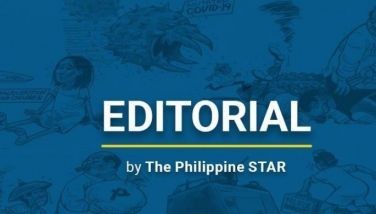Liberalism and nationalism

Democracy and liberalism seem to be undergoing a perilous period in the world today. When I refer to liberalism, I am referring to the tolerance of differences in beliefs and faiths; respect for individual rights especially human rights; and, the rule of law as a basis for settling differences.
According to Freedom House, a US funded organization since 1941, which conducts research and advocacy on democracy, political freedom, and human rights. “… political rights and civil liberties around the world have fallen each year for the last sixteen years.” The rise of autocracies such as China and Russia and the erosion of liberties in countries like Hungary, Turkey have been growing in strength around the world. Even the bastions of liberal democracies such as India and the United States have seen similar decline. The US was once perceived as the leader of freedom and human rights in the world. But in recent times, the political triumph of Trump and Trumpism has shown that even the most traditional liberal states are not immune to the rise of fascism or what Biden calls “semi-fascism.”
In the different states, which have seen the rise of illiberalism or nonliberalism, there has been a corresponding increase in the call for nationalism by its political leaders. It is clear that many autocratic leaders and opponents of liberalism have used the rhetoric of nationalism as a tool to advance their own views. For example, when a government deprives its people of human rights and liberal countries denounce this abuse of power, so-called nationalist spokesmen call this denunciation by foreign countries as interfering in the internal affairs of a nation.
The International Criminal Court (ICC) has also been accused of interference when it seeks to conduct hearings on human rights abuses.
Liberalism has been accused of being a global conspiracy by Western countries to advance their so-called “imperialist ambitions.” But liberalism continues to exist for centuries because of its ability to manage diversity of views and political thought in pluralistic societies. It requires society to have shared values such as tolerance of competing views, the need for compromise and deliberation in order to exist and flourish. The problem is that liberalization does not foster the strong emotional bonds similar to those of nationalism. Freedom of the press, for example, is a difficult concept to grasp, unlike sacrificing lives in defense of one’s country against foreign interventions.
Proponents of liberalism often have difficulty presenting a positive vision of their ideas and its impact on the everyday lives of people. While intellectuals and the educated class may find that the concept of freedom of speech and assembly has a strong emotional appeal to the ordinary citizen, this may be a luxury that has no real effect on their daily lives.
Consider the definition of human rights in the UN Universal Declaration of Human Rights: “All human beings are born free and equal in dignity and rights… Everyone is entitled to all the rights and freedoms set forth in this Declaration without distinction of any kind such as race, color, sex, language, religion, political or other opinion, national or social origins, property, birth or other status.”
These concepts are difficult to grasp by people who are mainly engaged in daily survival and whose lives are often dependent on the whims of traditional politicians and members of the elite.
According to the well-known political author Francis Fukuyama: “Nationalists complain that liberalism has dissolved the bonds of national community and replaced them with a global cosmopolitanism that cares about people in distant countries as much as it cares for fellow citizens. Nineteenth century nationalists based national identity on biology and believed that national communities were rooted in common ancestry.”
Those who advocate for the ideas of liberalism often forget the emotional power of nationalism. Autocrats and populist leaders have learned to use this powerful ideology of nationalism to advance their own agenda. Again Fukuyama says that “… the substantive conservative critique of liberalism—that liberal societies provide no strong moral core around which community can be built—is true enough. This is indeed a feature of liberalism.”
There was a time when communities had common moral beliefs based on religion. But modern societies today are more diverse religiously. Even the Christian religions have become diverse. The idea of restoring a shared moral tradition defined by religious beliefs is very difficult in modern society. When this happens, it usually results in the rise of extremism like the Muslim terrorists in the Middle East, Hindu nationalists in India and right-wing Christian terrorists in the US and western Europe.
Liberals often deride populists who use nationalism as electoral weapons. Liberal intellectuals consider this as crude language. For example, Trump’s message of nationalism, “Make America Great Again” is considered as oversimplification and jingoistic. The effect is that liberals have allowed Trump to monopolize the message of nationalism. Xi Jinping and Putin are other examples of autocratic leaders who have used nationalism to overcome the message of liberalism and human rights and the use of force to preserve internal order and protection from “external or foreign enemies.” Human rights and other liberal rights are meaningless, if they cannot be enforced by a state or accepted by the people as a whole. Liberal leaders must find ways to identify liberal rights with nationalism and its role in improving the quality of life for the common people.
Failure to do so will allow autocrats and populists to continue winning the war for the people’s hearts and minds.
* * *
Write Things’ September Offerings via Zoom:
Sept. 17: “Writing in Challenging Times, “ for adults with award-winning novelist Glenn Diaz, 3-4:30 pm
Sept. 24: Young Writers’ Hangout with facilitator Sofi Bernedo, 2-3 pm.
Contact [email protected]. 0945.2273216
Email: [email protected]
- Latest
- Trending



























